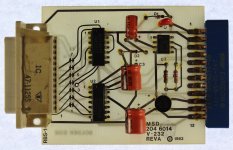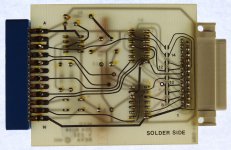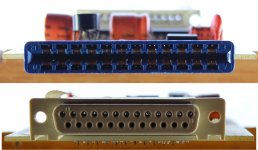Divarin
Veteran Member
I've had this device sitting around for years and have rarely used it. The reason is that it gets really hot, well U1 (one of the MAX232CPE chips) gets hot. Like hot enough that you can smell it burning and if you touch it you burn yourself.
U2 (which is the same chip) is fine.
I tried swapping the two chips to see if the heat moved (bad chip?) but it didn't
There's no shorts that I can detect, voltage into the chips is fine (just shy of 5v).
I tried to find any info about this (url is printed on the PCB: www.museo-computer.it) but even with the wayback machine I can't find any info. Schematics was what I was going for but so far can't even find evidence this thing ever existed (maybe from a parallel universe?)
I did see this text-only schematic of an RS232 interface design (http://www.zimmers.net/anonftp/pub/cbm/documents/projects/rs232/index.html) (at bottom) but this looks different from what I have.
Has anyone here used one of these or something similar?
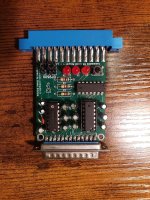
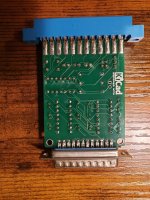
U2 (which is the same chip) is fine.
I tried swapping the two chips to see if the heat moved (bad chip?) but it didn't
There's no shorts that I can detect, voltage into the chips is fine (just shy of 5v).
I tried to find any info about this (url is printed on the PCB: www.museo-computer.it) but even with the wayback machine I can't find any info. Schematics was what I was going for but so far can't even find evidence this thing ever existed (maybe from a parallel universe?)
I did see this text-only schematic of an RS232 interface design (http://www.zimmers.net/anonftp/pub/cbm/documents/projects/rs232/index.html) (at bottom) but this looks different from what I have.
Has anyone here used one of these or something similar?



